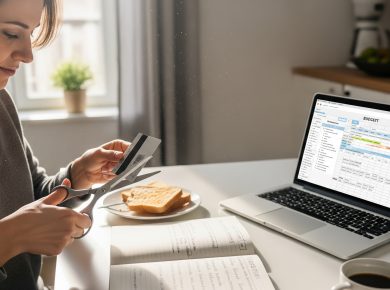Getting paid is a great feeling, but what you do next with that paycheck can significantly impact your personal finances.
Making smart decisions when your income hits your account is crucial for building a solid financial future. This guide will walk you through the essential dos and don’ts to help you manage your money effectively from the moment you get paid. Understanding these principles can transform your approach to personal finance and set you on a path to achieving your financial goals.
Table of Contents
The “Dos”: Smart Actions to Take on Payday
When your paycheck arrives, it’s tempting to start spending immediately. However, taking a few strategic steps first can make a big difference in your overall financial health. These actions focus on planning, saving, and covering your essential needs before indulging in wants.
- Pay Yourself First (Savings and Investments): Before you do anything else, allocate a portion of your income to savings and investments. This could be a transfer to an emergency fund, a contribution to a retirement account, or an investment in stocks or bonds. Automating this process can make it even easier. Building this habit is a cornerstone of good personal finance.
- Cover Your Necessities: Ensure your essential expenses are covered. This includes housing (rent/mortgage), utilities, groceries, transportation, and insurance premiums. Knowing these are taken care of provides peace of mind and a stable foundation. If you’re looking for ways to manage larger essential costs, understanding options like a home mortgage can be beneficial for long-term planning.
- Address Your Debts: Make timely payments on any outstanding debts, such as credit cards, student loans, or personal loans. Prioritize high-interest debts to save money in the long run. Sticking to a debt repayment plan is crucial for improving your credit score and overall financial well-being.
- Review Your Budget: Take a quick look at your budget. Does your spending plan for the upcoming period align with your income and financial goals? Make any necessary adjustments. If you don’t have a budget, now is a great time to create one.
- Plan for Upcoming Expenses: Think about any irregular but predictable expenses coming up, like annual subscriptions, car maintenance, or holiday gifts. Set aside some money for these to avoid financial stress later.
Making a plan for your money is the first step to taking control of your personal finances and building the future you desire.
The “Don’ts”: Common Pitfalls to Avoid on Payday
Just as important as knowing what to do is understanding what not to do when you get paid. Avoiding these common mistakes can prevent financial headaches and keep your personal finance goals on track.
- Don’t Go on an Immediate Spending Spree: The urge to splurge can be strong, but resist it until you’ve covered your priorities. Impulsive buying can quickly derail your budget and savings plans.
- Don’t Ignore Your Financial Goals: Payday is the perfect time to make progress towards your goals, whether it’s saving for a down payment, paying off debt, or building an emergency fund. Don’t let the entire paycheck disappear on discretionary spending.
- Don’t Forget About Taxes: If you’re a freelancer or have variable income, ensure you’re setting aside enough for taxes. Forgetting this can lead to a nasty surprise when tax season arrives.
- Don’t Neglect Small Debts: It might be tempting to focus only on large debts, but small, lingering debts can also add up and impact your credit. Address them as part of your overall debt management strategy. For those new to managing credit, learning about your first credit card and how to use it wisely is a valuable step.
- Don’t Keep All Your Money in Your Checking Account: While it’s good to have easy access to some cash, keeping your entire paycheck in a checking account might make it too easy to spend. Plus, you could be missing out on potential interest from savings accounts or growth from investments.
Building Healthy Payday Habits for Long-Term Personal Finance Success
Developing a consistent routine for managing your money on payday is a powerful personal finance habit. It’s not just about this paycheck; it’s about creating a system that supports your financial well-being over the long term. Start by implementing one or two of these “dos” and avoiding one or two of the “don’ts.” As you get comfortable, you can incorporate more.
Consider using budgeting apps or tools to help automate and track your finances. Many apps allow you to categorize expenses, set savings goals, and monitor your progress. The key is to find a system that works for you and stick with it. Remember, small, consistent actions can lead to significant financial improvements over time.
Conclusion: Take Control of Your Paycheck, Take Control of Your Future
How you handle your money on payday sets the tone for your financial health. By prioritizing saving, covering necessities, managing debt, and planning your spending, you can make your paycheck work harder for you. Avoiding common pitfalls like impulsive spending and neglecting your financial goals will further strengthen your personal finances.
Mastering these payday dos and don’ts is a crucial step in effective personal finance management. It empowers you to build financial security, achieve your goals, and create a more stable and prosperous future. Start with your next paycheck and make these smart money moves a regular part of your financial routine.






